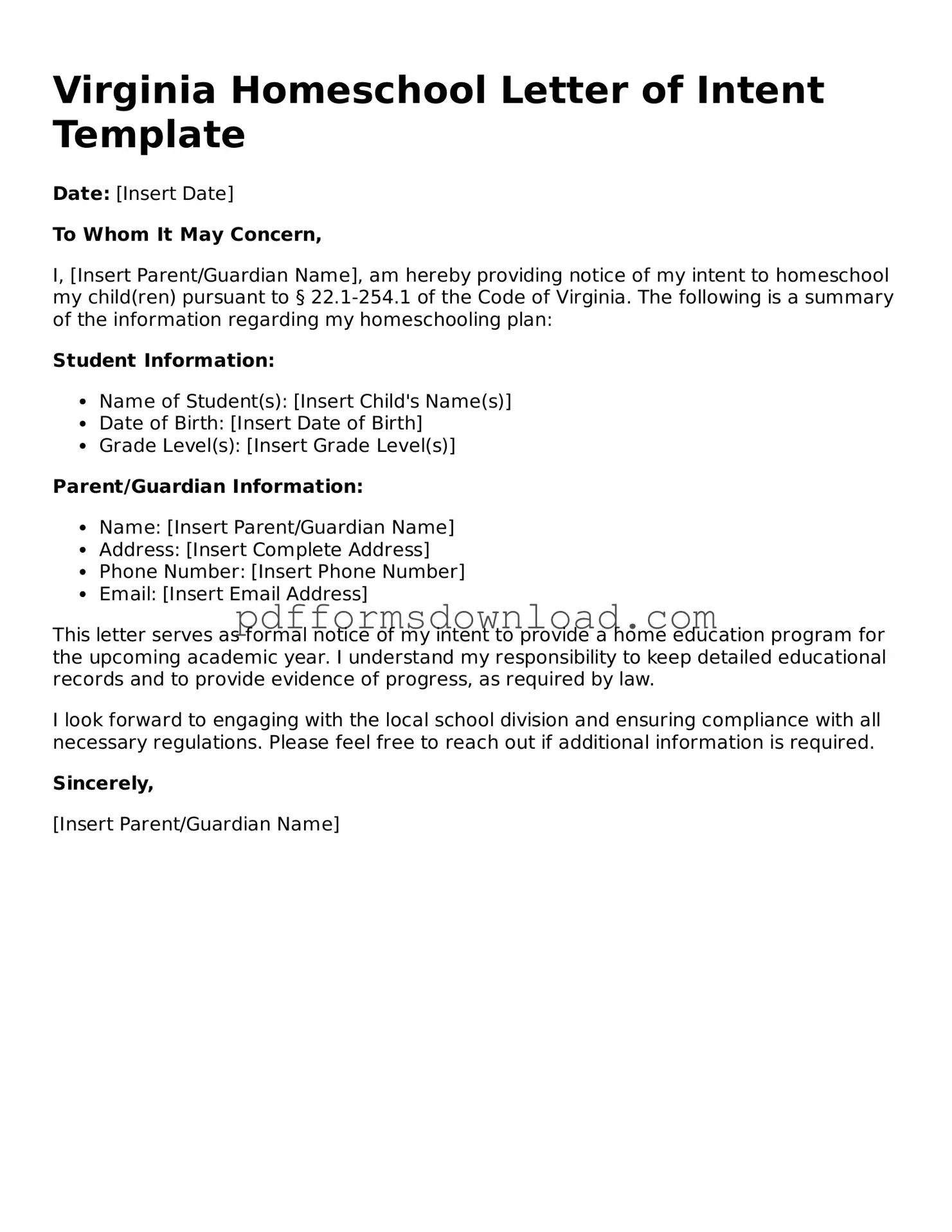What is the Virginia Homeschool Letter of Intent form?
The Virginia Homeschool Letter of Intent is a document that parents or guardians must submit to their local school division if they wish to homeschool their children. This form serves as a formal notification to the school district that the family intends to provide home education. It is a crucial first step in the homeschooling process in Virginia.
Who needs to file the Letter of Intent?
Any parent or guardian who wishes to homeschool a child in Virginia must file the Letter of Intent. This requirement applies to children who are of compulsory school age, which is typically between the ages of 5 and 18. It is essential for families to submit this form before beginning their homeschooling program.
When should the Letter of Intent be submitted?
The Letter of Intent should be submitted to the local school division at least five days before the start of the homeschooling program. For families who are withdrawing their child from public school to begin homeschooling, it is advisable to submit the form as soon as the decision is made to ensure compliance with state regulations.
What information is required on the Letter of Intent?
The form typically requires basic information such as the name and address of the child, the name of the parent or guardian, and the intended start date of homeschooling. Additionally, families may need to provide information about the educational program they plan to use, though specific details can vary by school division.
Is there a deadline for submitting the Letter of Intent?
While there is no strict annual deadline for submitting the Letter of Intent, it is important to submit it before beginning homeschooling. For families who choose to homeschool their children after withdrawing them from a public school, submitting the form promptly is crucial to avoid any potential truancy issues.
What happens after the Letter of Intent is submitted?
Once the Letter of Intent is submitted, the local school division will typically acknowledge receipt of the form. Parents should keep this acknowledgment for their records. The school division may also provide additional information regarding homeschooling regulations, including any necessary assessments or reporting requirements that must be followed throughout the homeschooling year.
Can the Letter of Intent be revoked?
Yes, parents can revoke the Letter of Intent if they decide to return their child to public school or pursue a different educational option. To do this, it is advisable to notify the local school division in writing. This ensures that the school is aware of the change in educational status and can provide the necessary support for re-enrollment if needed.

